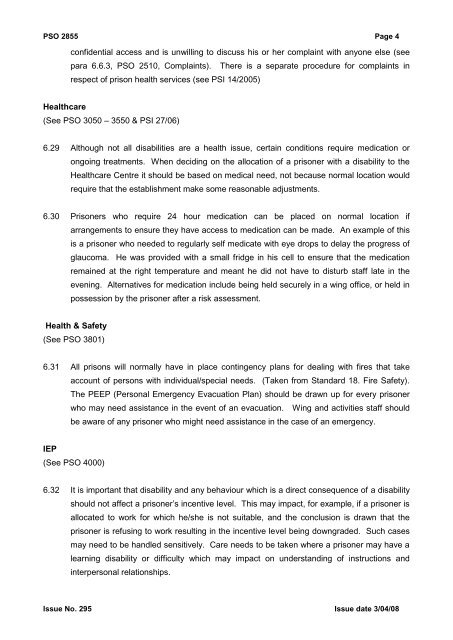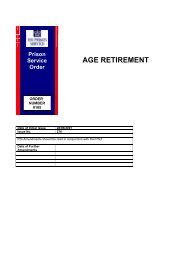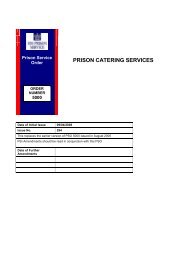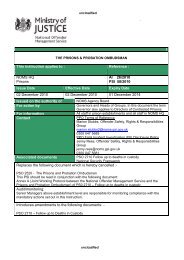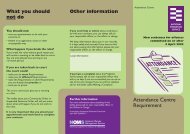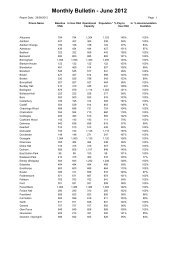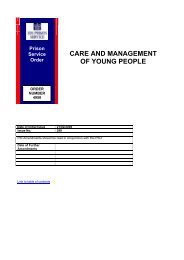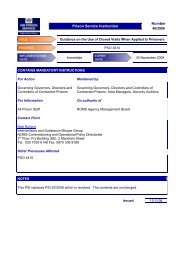PSO 2855 - Inside Time
PSO 2855 - Inside Time
PSO 2855 - Inside Time
You also want an ePaper? Increase the reach of your titles
YUMPU automatically turns print PDFs into web optimized ePapers that Google loves.
<strong>PSO</strong> <strong>2855</strong> Page 4confidential access and is unwilling to discuss his or her complaint with anyone else (seepara 6.6.3, <strong>PSO</strong> 2510, Complaints). There is a separate procedure for complaints inrespect of prison health services (see PSI 14/2005)Healthcare(See <strong>PSO</strong> 3050 – 3550 & PSI 27/06)6.29 Although not all disabilities are a health issue, certain conditions require medication orongoing treatments. When deciding on the allocation of a prisoner with a disability to theHealthcare Centre it should be based on medical need, not because normal location wouldrequire that the establishment make some reasonable adjustments.6.30 Prisoners who require 24 hour medication can be placed on normal location ifarrangements to ensure they have access to medication can be made. An example of thisis a prisoner who needed to regularly self medicate with eye drops to delay the progress ofglaucoma. He was provided with a small fridge in his cell to ensure that the medicationremained at the right temperature and meant he did not have to disturb staff late in theevening. Alternatives for medication include being held securely in a wing office, or held inpossession by the prisoner after a risk assessment.Health & Safety(See <strong>PSO</strong> 3801)6.31 All prisons will normally have in place contingency plans for dealing with fires that takeaccount of persons with individual/special needs. (Taken from Standard 18. Fire Safety).The PEEP (Personal Emergency Evacuation Plan) should be drawn up for every prisonerwho may need assistance in the event of an evacuation. Wing and activities staff shouldbe aware of any prisoner who might need assistance in the case of an emergency.IEP(See <strong>PSO</strong> 4000)6.32 It is important that disability and any behaviour which is a direct consequence of a disabilityshould not affect a prisoner‟s incentive level. This may impact, for example, if a prisoner isallocated to work for which he/she is not suitable, and the conclusion is drawn that theprisoner is refusing to work resulting in the incentive level being downgraded. Such casesmay need to be handled sensitively. Care needs to be taken where a prisoner may have alearning disability or difficulty which may impact on understanding of instructions andinterpersonal relationships.Issue No. 295 Issue date 3/04/08


